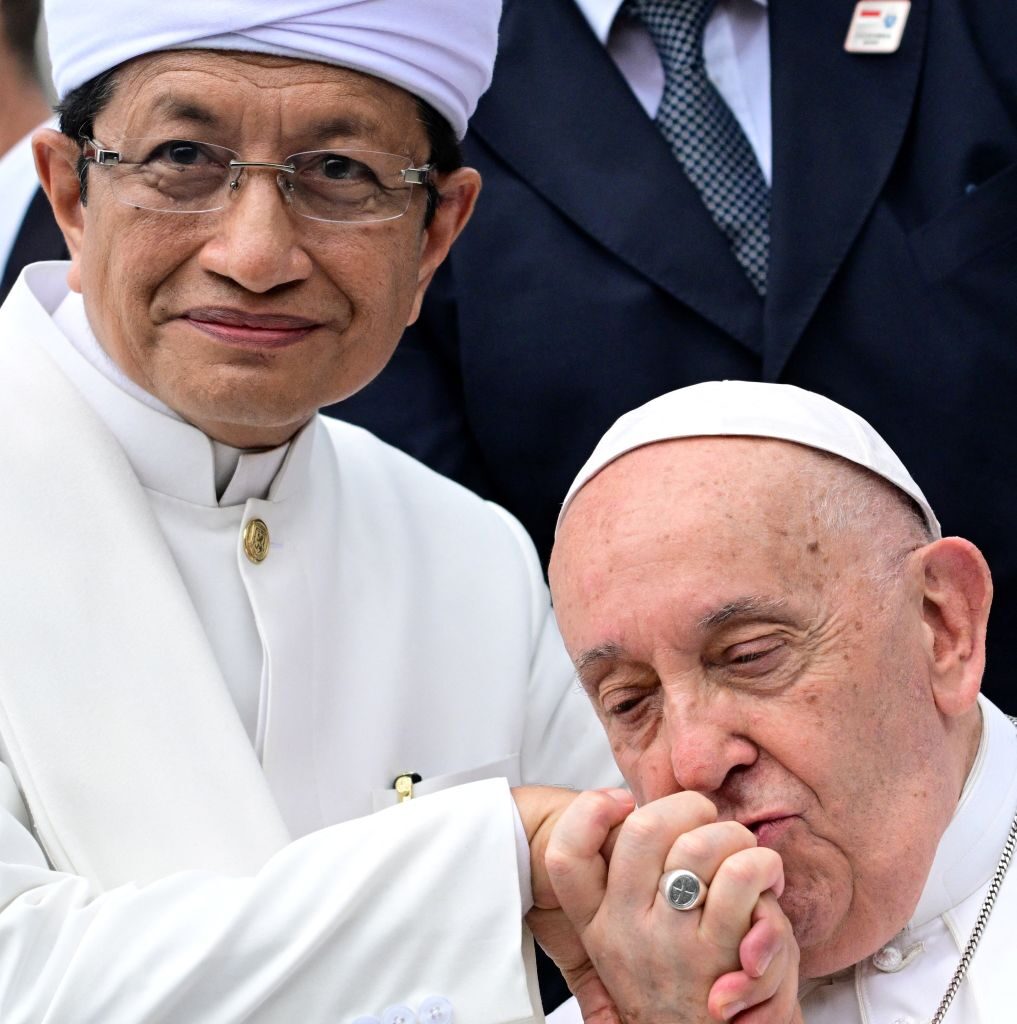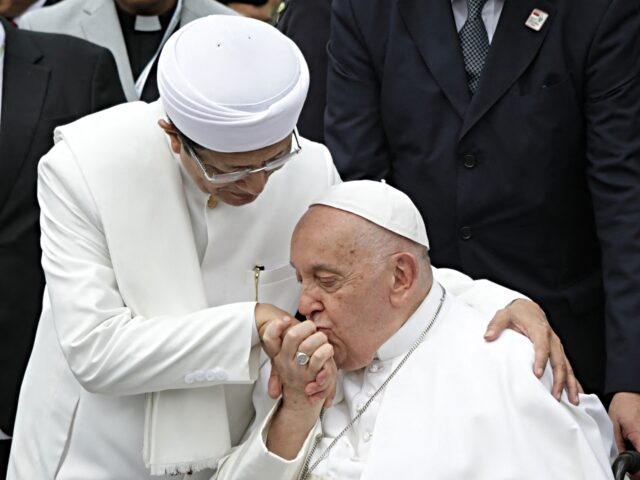ROME — Pope Francis has signed a joint declaration together with Indonesia’s Grand Imam Nasaruddin Umar, in which they denounce the “crisis” of climate change.
“Our world is clearly facing two serious crises, dehumanization and climate change,” the declaration reads.
“The human exploitation of creation, our common home, has contributed to climate change, leading to various destructive consequences, such as natural disasters, global warming, and unpredictable weather patterns,” states the text, which was read aloud and signed in Southeast Asia’s largest mosque.
The Istiqlal Joint Declaration 2024, subtitled “Fostering Religious Harmony for the Sake of Humanity,” asserts that the “ongoing environmental crisis has become an obstacle to the harmonious coexistence of people.”
“We sincerely call on all people of good will to take decisive action in order to maintain the integrity of the natural environment and its resources,” it reads, “for we have inherited them from the past generations and hope to pass them on to our children and grandchildren.”
Pope Francis is currently in Jakarta, Indonesia, in the midst of the longest trip of his 11-year pontificate. He plans to visit four countries in the Asia Pacific over 12 days, the most continuous time he has spent away from the Vatican since his election in 2013.

Pope Francis (R) kisses the hand of the Grand Imam of Istiqlal Mosque Nasaruddin Umar after an interreligious meeting with religious leaders at the Istiqlal Mosque in Jakarta on September 5, 2024. (Photo by Tiziana FABI / AFP) (Photo by TIZIANA FABI/AFP via Getty Images)
After Indonesia, he will travel to Papua New Guinea, Timor-Leste, and Singapore.
Along with climate change, the joint declaration decries the “global phenomenon of dehumanization,” marked by widespread violence and conflict. It is “particularly worrying” that religion is often instrumentalized in this regard, causing suffering to many, especially to women, children, and the elderly, it says.
In 2019, Pope Francis and the Grand Imam Ahmed Al-Tayeb of Al-Azhar of Egypt signed a joint declaration in Abu Dhabi, condemning “acts of murder, exile, terrorism and oppression” carried out in God’s name.
We “resolutely declare that religions must never incite war, hateful attitudes, hostility and extremism, nor must they incite violence or the shedding of blood,” the 3,000-word text reads. “These tragic realities are the consequence of a deviation from religious teachings.”
The text was later criticized by prominent theologians for “devaluing the person of Jesus” and “undermining the gospel itself” since it seemed to propose that God willed the existence of a plurality of religions just as he wills a plurality of sexes, races, and languages, rather than willing that all people find their salvation in Jesus Christ.
The passage that caused the most consternation said that the “pluralism and the diversity of religions, color, sex, race and language are willed by God in his wisdom, through which he created human beings.”
A number of Catholic theologians criticized the text, asserting that such a statement seemed to suggest that either God actively wills error, or that all religions are equally valid paths to God.
The existence of a variety of colors, races, and languages in humanity is very different from a variety of contradictory claims about God’s identity and way of acting, they insisted.
Pope Francis regularly speaks against climate change, declaring last May that it is a “planetary crisis” where billions face “an extremely high risk of climate-related devastation.”
The data on climate change “is getting worse every year,” putting “all human beings in grave danger,” he said.
Climate change, together with biodiversity loss, environmental degradation, global disparities, and food insecurity, poses “existential threats to humanity, to other living beings, and to all ecosystems,” the pope declared.
Wealthy nations are especially responsible for the warming earth, he contended, since the richest nations “produce more than half of the pollutants that trap heat.”
This means that the wealthier nations have contracted an “ecological debt” toward poorer nations, Francis proposed, which calls for debt restructuring and reduction, as well as the development of “a new Global Financial Charter by 2025.”
“The specter of climate change looms over every aspect of existence, threatening water, air, food and energy systems,” he argued, adding that more than three and a half billion people “live in regions that are highly sensitive to the ravages of climate change.”
This “planetary crisis” demands “a universal approach and swift and decisive action, capable of producing political change and decisions,” he urged.
We need to “aim for global decarbonization, eliminating dependence on fossil fuels,” he added.
“We need to act urgently – urgently!” he said, “because the stakes couldn’t be higher.”

COMMENTS
Please let us know if you're having issues with commenting.